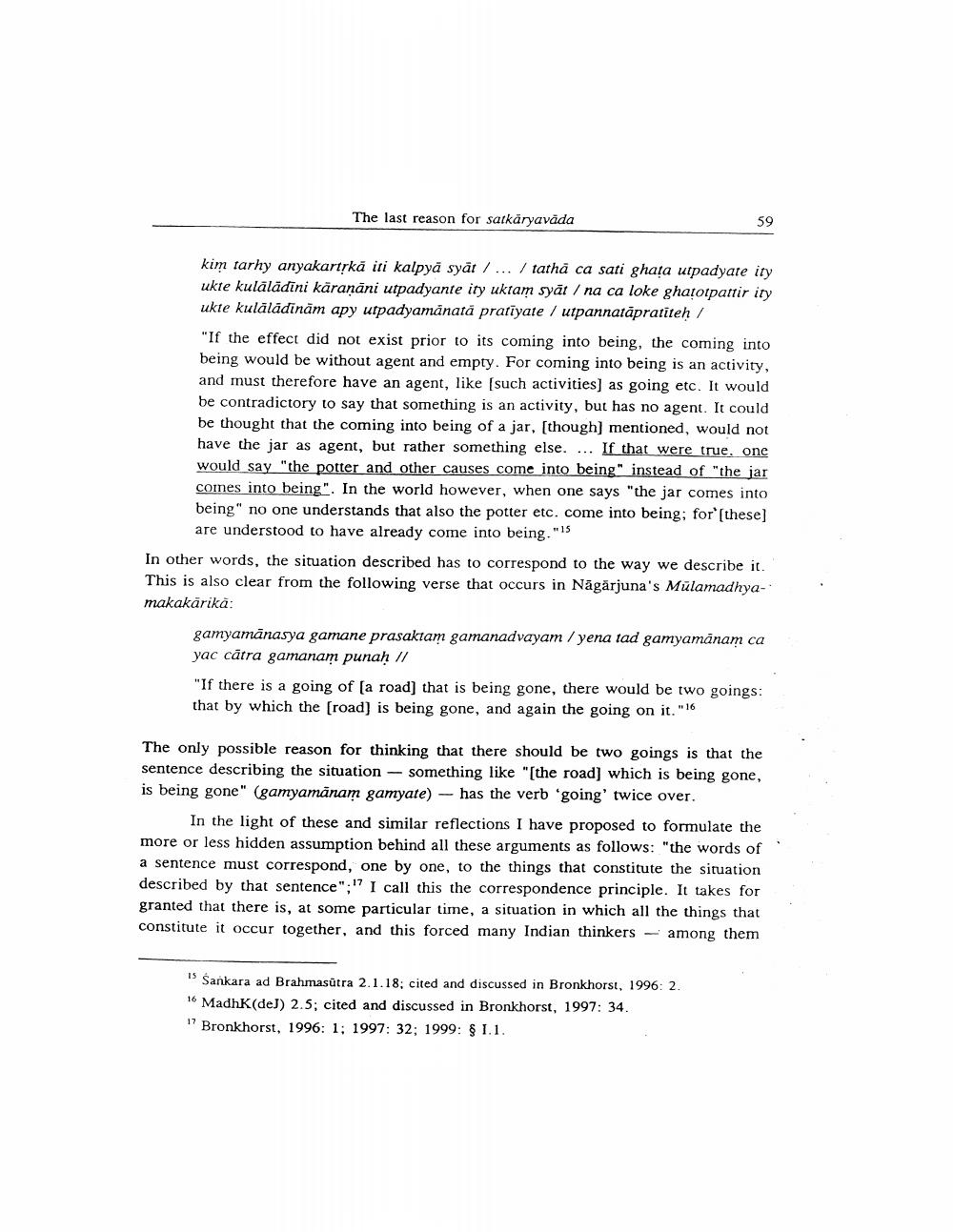Book Title: Last Reason For Satkaryavada Author(s): Johannes Bronkhorst Publisher: Johannes Bronkhorst View full book textPage 7
________________ The last reason for satkäryavāda kim tarhy anyakartrkā iti kalpyā syāt / ... / tathā ca sati ghata utpadyate ity ukte kulalădini karanāni utpadyante ity uktam syāt / na ca loke ghatotpattir ity ukte kulālādinām apy utpadyamănată pratiyate / utpannatāpratiten / "If the effect did not exist prior to its coming into being, the coming into being would be without agent and empty. For coming into being is an activity, and must therefore have an agent, like (such activities) as going etc. It would be contradictory to say that something is an activity, but has no agent. It could be thought that the coming into being of a jar, (though) mentioned, would not have the jar as agent, but rather something else. ... If that were true, one would say "the potter and other causes come into being" instead of "the jar comes into being". In the world however, when one says "the jar comes into being" no one understands that also the potter etc. come into being; for'[these] are understood to have already come into being."15 In other words, the situation described has to correspond to the way we describe it. This is also clear from the following verse that occurs in Nagarjuna's Mülamadhyamakakärika: gamyamanasya gamane prasaktam gamanadvayam / yena tad gamyamanam ca yac catra gamanam punah // "If there is a going of (a road) that is being gone, there would be two goings: that by which the (road) is being gone, and again the going on it." The only possible reason for thinking that there should be two goings is that the sentence describing the situation – something like "[the road) which is being gone, is being gone" (gamyamanam gamyate) - has the verb 'going' twice over. In the light of these and similar reflections I have proposed to formulate the more or less hidden assumption behind all these arguments as follows: "the words of a sentence must correspond, one by one, to the things that constitute the situation described by that sentence":17 I call this the correspondence principle. It takes for granted that there is, at some particular time, a situation in which all the things that constitute it occur together, and this forced many Indian thinkers - among them " Sankara ad Brahmasútra 2.1.18; cited and discussed in Bronkhorst, 1996: 2. 16 MadhK(de)) 2.5; cited and discussed in Bronkhorst, 1997: 34. "? Bronkhorst, 1996: 1; 1997: 32; 1999: $ 1.1.Page Navigation
1 ... 5 6 7 8 9 10
